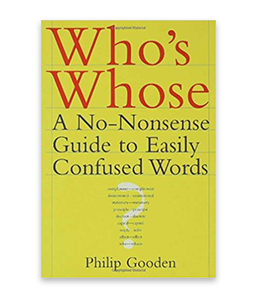- My Library Account
- Collections

Collections
The Library provides access to books, electronic resources, archives, special collections, and more to support your learning and research.
- Research

Research
The Library is committed to supporting your research needs with expert guidance and resources.
- Studying
- Academic Skills Service for Students
- Academic Writing Centre
- Assistive Technology Area
- Borrowing Limits, Lost Books & Fines
- Digital Literacy
- Equipment & More
- Group Study Rooms
- Library & IT Service Desk
- MakerSpace for Students
- Past Exam Papers
- Photocopying & Printing
- Shannon College Library
- Study Spaces
- Tour Timetable
- Using Other Libraries

Studying
The Library has all the resources and supports you need to be successful in your studies at undergraduate and postgraduate level. Whether you're just starting your studies or working on your final project, we're here to help.
- Teaching

Teaching
We are here to help lecturers and academic staff deliver quality teaching and support their students' success.
- About

- Workshops & Events
Who's Whose Review
Philip Gooden, Who's Whose?: A No-nonsense Guide to Easily Confused Words. London: A. & C. Black, 2007
Review by Amanda Pecora

Do you find yourself having to look up ‘affect vs. effect’ every time you write an essay? Are you constantly confused whether you should use an apostrophe in ‘it’s’? Gooden’s book works like a dictionary with a twist. He lists commonly confused words alphabetically, defines their differences, gives examples, and provides some tips on how to avoid confusion. For every commonly confused pairing, Gooden gives examples from actual newspapers of the words being used correctly or incorrectly. He also adds an ‘embarrassment rating’ to help the reader determine which words are most important to remember.
Two of the most difficult words to tell apart are ‘affect’ and ‘effect’. The following is a summary of Gooden’s entry on these commonly confused words.
Affect: verb that means ‘to have an influence on’, ‘to make a difference to’
Peter’s drinking affected his health more than his personality. (Found in the Independent)
Effect: verb that means ‘to bring about’, noun that means ‘impact’
They effected the most dramatic transformation almost overnight. (Found in The Times)
The harmful effects of cigarette smoking are now well established.
Embarrassment rating: Confusing the two words has an embarrassment rating of 1.5 out of 3. Since it is so common to mix up the two words, nearly everyone does it at some point in their writing.
How to avoid confusion: The easiest way to tell the two words apart is to remember that if you are looking for a verb, you usually use ‘affect’ and if you want a noun, you typically use ‘effect’. It might also be helpful to remember that a verb is something you do (run, write, talk, etc.), and a noun is a person, place, or thing (dog, Galway, rock, etc.)
Another helpful entry shows the differences between ‘it’s’ and ‘its’. Since it’s easy to use the wrong form of the word in academic writing, here is a summary of Gooden’s explanation of their difference.
It’s: contracted form of ‘it is’ or ‘it has’ (just like ‘don’t’ is the contracted form of ‘do not’)
It’s a warm day.
Its: possessive form of the pronoun ‘it’
The cat flicked its tail.
Embarrassment rating: 3 out of 3. There is an easy trick for remembering which word to use.
How to avoid confusion: If you’re unsure whether or not to use the apostrophe, try substituting ‘its’ for ‘it is’ or ‘it has’ in the sentence. If it makes sense, then use the contracted form ‘it’s’. If not, then use the possessive ‘its’.
It’s (it is) cold outside.
The cat drank its (it is) milk.
Who’s Whose is a convenient reference for anyone wanting to double check their academic writing. Even native speakers commonly use ‘perspective’ when they mean ‘prospective’ or ‘farther’ when they mean ‘further’. The one problem is that Who’s Whose does not tell the reader how to pronounce the words. While this may not be an issue for more commonly used words, it would be helpful to have a pronunciation guide for words like ‘pseudonym’ or ‘auger’, particularly for readers whose first language is not English.











